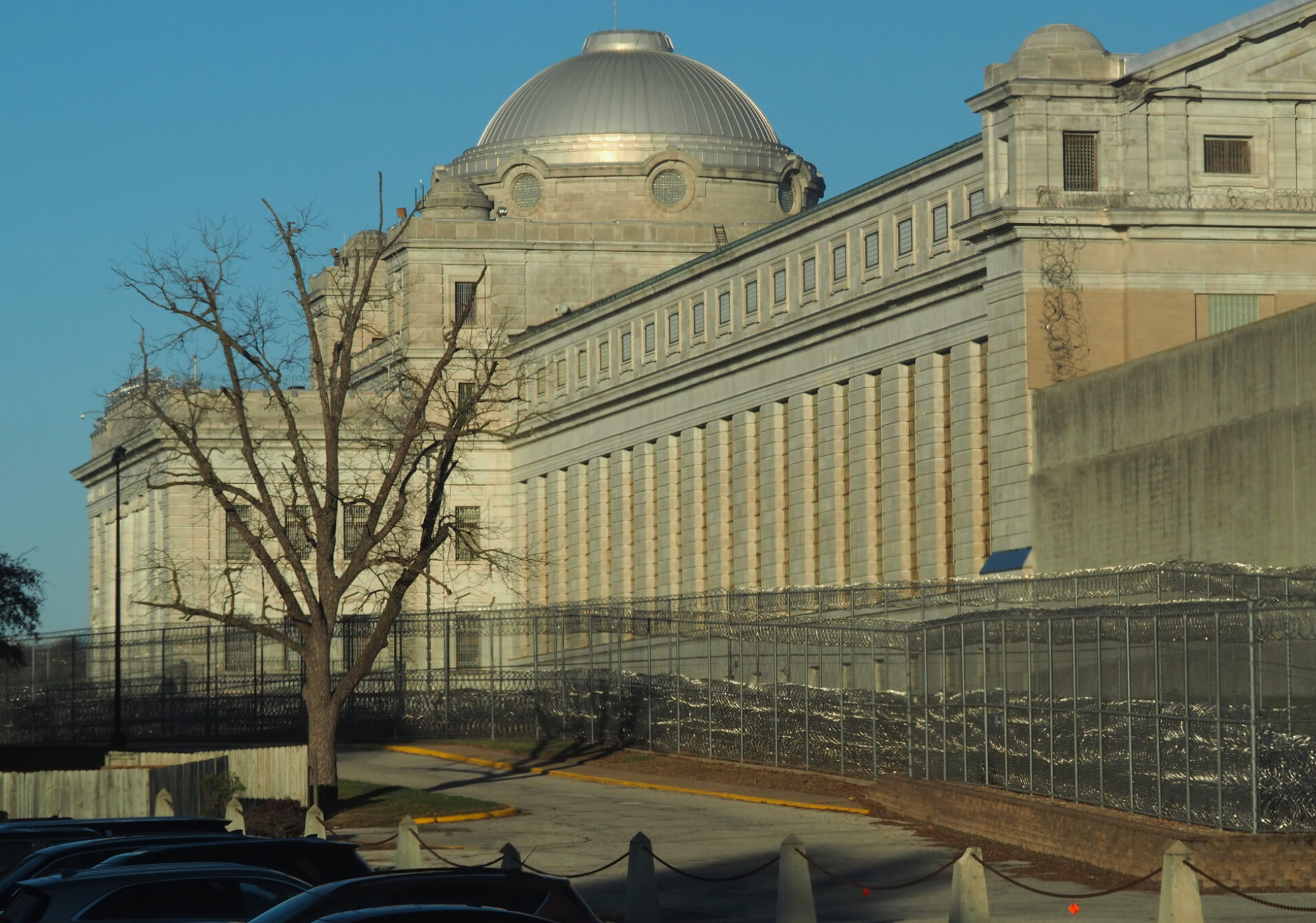
BY: ANNA KAMINSKI
Kansas Reflector
TOPEKA — Problems linger in a Kansas federal prison holding immigrant detainees, even after altering some practices that a coalition of lawyers, civil rights groups and advocates revealed were harmful to those inside.
The Federal Correction Institution at Leavenworth is one of two places in Kansas where Immigration and Customs Enforcement can detain people long term, and the coalition wrote to the prison warden in June about unsanitary, inequitable and unhealthy conditions.
Warden Crystal Carter wrote in a June 20 response letter that the prison had eliminated medical fees, added law library resources that ICE failed to provide, implemented new recreation hours and expanded Spanish-language communications.
But concerns about lockdowns and adequate phone call time remain, said Kyle Virgien, a senior staff attorney with the American Civil Liberties Union’s National Prison Project.
“We see a lot of problems across ICE’s detention network,” Virgien said. “Detention is difficult. It rips people from their communities. It isolates them from their families. This is a constant.”
Virgien began speaking with people inside Leavenworth in April and continues to monitor conditions.
What he heard was troubling, he said.
The coalition wrote in a pair of letters in May that detained immigrants faced unsanitary and crowded living quarters, extended lockdowns, delayed and costly medical treatment, restricted contact with their families, and no access to religious services.
Some had attempted suicide, the letter said.
Carter, the warden, said things have changed.
After reviewing its procedures, the prison eliminated a $2 fee that people in ICE custody were charged for certain health visits. Staff were told to stop those charges and reverse all previous ones. To boost access for medical services, the prison created request slips written in Spanish for ICE detainees, Carter said. However, it is unclear how quickly officials respond to Spanish medical requests.
Carter said capacity concerns did not exist at the time of writing, and, according to the coalition, people inside have said what once were crowded cells have become less so.
According to July data from ICE, estimating average daily populations from the past year, about 35 people are held daily in Leavenworth for immigration reasons. Most pose little to no threat, according to ICE threat level classifications. On average, around 21 people were associated with criminal cases, and 12 were not. All are male and stay an average of 25 days.
During those 25 days, people in ICE custody now are afforded at least one hour of outdoor recreation time daily and a maximum of 300 minutes of phone calls per month, with no call lasting longer than 15 minutes.
People in ICE custody at Leavenworth are subject to the rules and policies of the Federal Bureau of Prisons, which oversees operations. Some of the rules and policies are a departure from typical conditions in ICE detention facilities, Virgien said.
He has heard stories of mistreatment from guards and retaliatory lockdowns that punish many for the actions of few, he said. Lockdowns mean people are in cells for 23 hours a day and must “pack all of their life tasks into that one hour outside the cell,” Virgien said, which can include recreation, showers, legal research, religious practices and phone calls.
Carter said one instance of a lockdown has occurred in Leavenworth’s ICE detention unit for 72 hours, and another more than eight hours.
“Except for the limited and infrequent instances, all ICE detainees have time outside of their cell each day and have access to exercise, the electronic law library and phone systems,” Carter said.
The people ICE detains in Leavenworth are imprisoned alongside people awaiting criminal trials or serving criminal sentences.
Benjamin O’Cone, a spokesman for the bureau, said in an emailed statement that it’s the mission of the bureau and Leavenworth to “operate facilities that are safe, secure and humane.”
“We take seriously our duty to protect the individuals entrusted in our custody, as well as maintaining the safety of our employees and the community,” O’Cone said. “Humane treatment of the men and women in our custody is a top priority.”
ICE did not respond to a request for comment. ICE also has not responded to the coalition’s letter, according to ACLU of Kansas spokeswoman Esmie Tseng.
Virgien said the coalition is glad the prison addressed some of the issues they raised, but concerns remain.
“Many of the people at the facility have already won their immigration cases, and ICE is still detaining them,” Virgien said.
The coalition believes ICE should release people as soon as their immigration cases are won.
In at least one case, an immigration judge determined a man could not return to his country of origin without risking torture. Others include people who have spoken out against authoritarian governments in their countries of origin or fled persecution. Some have young children. Many have come from Chicago, and a small number from Kentucky, Virgien said.
When asked about the possibility of pursuing legal action, Virgien said, “all options are on the table.”
Now, with major Congressional budget increases for ICE, Virgien fears problems will only multiply.
Congress approved more than $175 billion for ICE in its most recent budget bill, making it what the Brennan Center for Justice classified as the largest federal law enforcement agency. The funds expand ICE’s ability to bring people into custody while capping the number of immigration judges in the country.
Also in Leavenworth, private prison company CoreCivic is battling the city government to reopen a shuttered prison to use as its Midwest Regional Reception Center, which would detain as many as 1,000 people. A judge temporarily blocked the company in July from housing people at its facility until the matter is worked out in court.






